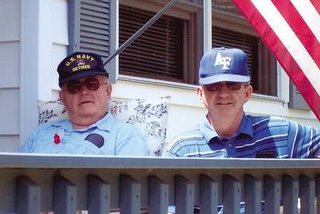
It's funny how many science fiction writers & movie-makers envisioned the future. Stuff like 1984 and 2001 portrayed societies where everyone wears matching collarless coveralls, watches the Big Head on the one TV channel, listens to bad classical music and, if they're lucky, drinks Coca-Cola. Fortunately for us all, it hasn't turned out that way yet (even though 1984 and 2001 are both behind us). And I don't think it's going to go that way.
I envision a future where no two people ever wear quite the same thing, or watch the same show, or even listen to the same song, because everything will be tweakable and hackable. I imagine there will be no such thing as a "tv channel" in the future, at least in the current sense of the term. Or maybe there will be as many channels as there are people. Sort of like the "internet channel," which is already serving up whatever video and audio content
YOU want, in addition to the text it's provided for the past decade.
I envision a future of nearly complete individuality and a bewilderingly diverse stream of possible inputs... partly because I think we're most of the way there already. I think
mass customization will come to virtually every realm of American life, and every single
beverage,
vehicle and
pair of shoes will be tailored to an individual's personal taste, style and bodyshape. (Note: this will benefit manufacturers by limiting the market for used stuff, because reselling used stuff is harder if it's been customized... and new stuff is more appealing if it's made "especially for you).
You want a regular Coke with 1/2 the sugar? No problem - it won't taste like regular coke, but that's sort of the point, isn't it? And you want it in Grape flavor, and the can should be purple, with your name on it? Why not!
Location will also become increasingly irrelevant. As soon as we figure out how to deliver pizzas and take-out Chinese food over long distances using high-speed UAV's (and maybe cook it as it flies), people will leave cities in droves. They'll still want to meet in
MeatSpace, for obvious reasons, so some sort of personalized, faster-than-cars transport will be necessary (maybe we'll get our
flying cars afterall!).
Of course, predicting the future is notoriously tricky. No doubt
I'm wrong on some parts of this (like the flying cars - sigh). But mass customization & exponential growth of consumer content is here already, and it's only going to spread.
What will this do to community? What will it do to culture and a sense of national identity? All sorts of things, no doubt. Some good, some bad. I suspect the US's melting pot culture is better postured to embrace, absorb and survive this trend than many of the older, less dynamic cultures around the world.
We'll see.























